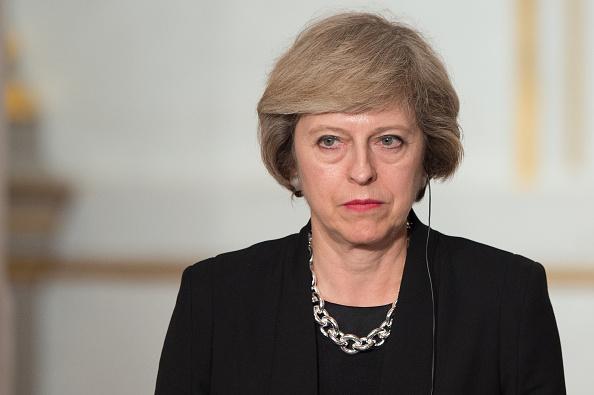Edward Snowden calls Theresa May 'Darth Vader in the UK'
The US whistleblower faces charges under the Espionage Act if he returns to the US

Your support helps us to tell the story
From reproductive rights to climate change to Big Tech, The Independent is on the ground when the story is developing. Whether it's investigating the financials of Elon Musk's pro-Trump PAC or producing our latest documentary, 'The A Word', which shines a light on the American women fighting for reproductive rights, we know how important it is to parse out the facts from the messaging.
At such a critical moment in US history, we need reporters on the ground. Your donation allows us to keep sending journalists to speak to both sides of the story.
The Independent is trusted by Americans across the entire political spectrum. And unlike many other quality news outlets, we choose not to lock Americans out of our reporting and analysis with paywalls. We believe quality journalism should be available to everyone, paid for by those who can afford it.
Your support makes all the difference.Edward Snowden has made his feelings known about Theresa May, describing the British Prime Minister as “a sort of Darth Vader in the United Kingdom”.
The exiled NSA whistleblower compared Ms May to one of film's most notorious film villains over her Investigatory Powers Bill currently undergoing legislative scrutiny.
In its earlier form, the bill proposed by the then Home Secretary would see records of internet browsing activity, correspondence and mobile phone messaging services stored by internet and phone providers for 12 months. It was blocked by the Liberal Democrats.

The Human Rights Committee has said the bill dubbed the Snooper’s Charter is still a “significant step forward” in its newest form, but privacy concerns surrounding the bulk gathering of data are still a major issue.
The bill will mean police and intelligence bodies will be able to access metadata of those living in the UK without a warrant. Snowden has been a vocal critic of the legislation which he says “legitimises mass surveillance”, warning the public: “Your web records are not like ‘an itemised phone bill’, they're like a list of every book you've ever opened.”
Snowden, who has lived in Moscow for the three years since he leaked thousands of classified documents about mass surveillance of citizens and fled the US, told the Guardian her surveillance bill is “an egregious violation of human rights, that goes far further than any law proposed in the western world”.
Snowden is now setting out the reasons why he believes he should be pardoned by President Obama before his presidency draws to a close. Already an unlikely prospect, it becomes increasingly improbable should Mr Obama be succeeded by Hillary Clinton and almost incomprehensible if his fate is left in the hands of Donald Trump.
The American Civil Liberties Union, Amnesty International and other human rights groups are due to launch a campaign urging the Obama administration to grant Snowden’s pardon on Wednesday.
Join our commenting forum
Join thought-provoking conversations, follow other Independent readers and see their replies
Comments